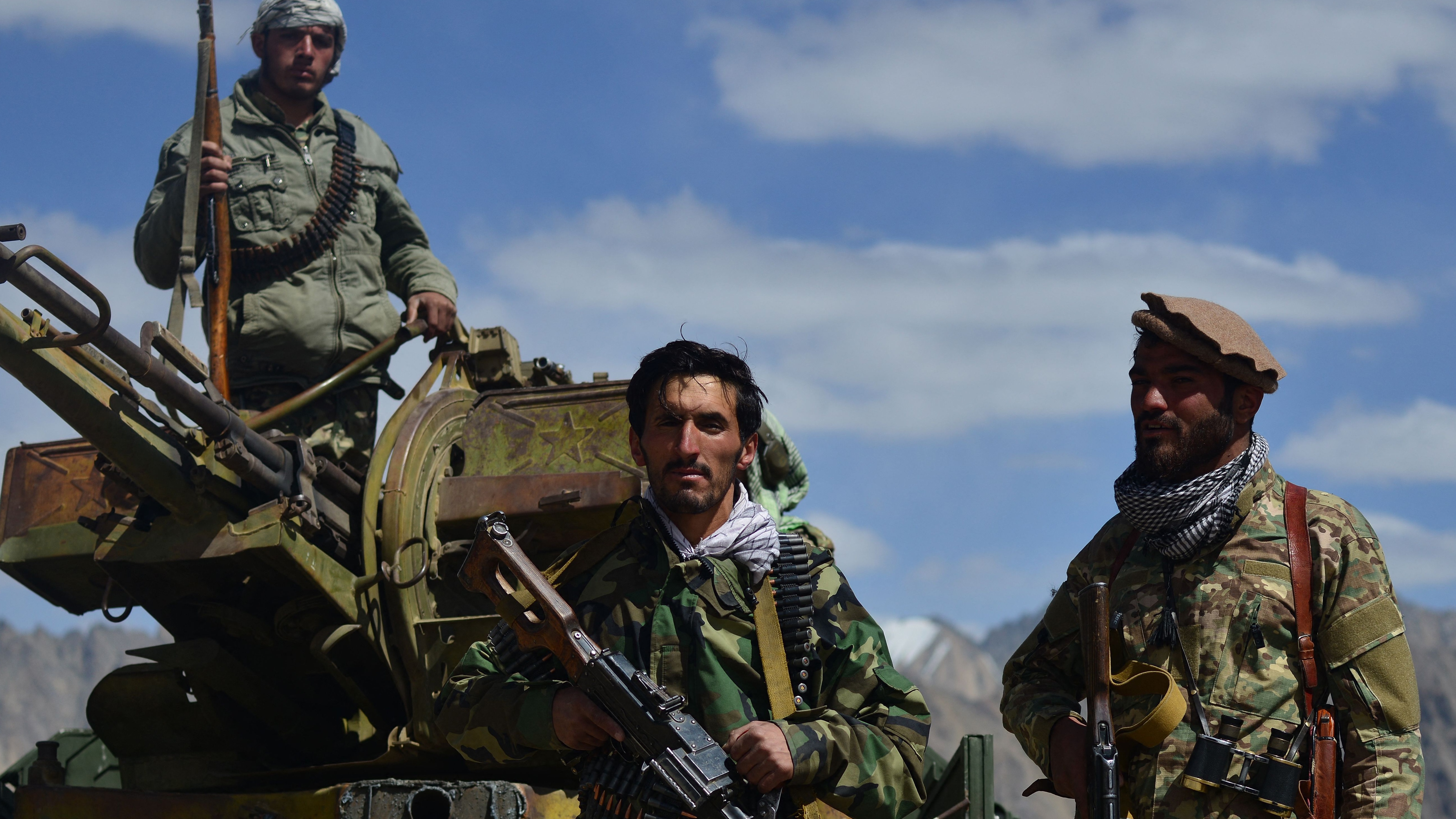Taliban close to crushing last bastion of resistance in Panjshir Valley
Militant group claims victory but local opposition forces have vowed to fight on

A free daily email with the biggest news stories of the day – and the best features from TheWeek.com
You are now subscribed
Your newsletter sign-up was successful
The Taliban has claimed it has “completely captured” the Panjshir Valley, home of the last pocket of resistance in Afghanistan.
“With this victory, our country is completely taken out of the quagmire of war,” Taliban chief spokesperson Zabihullah Mujahid said in a statement this morning.
Mujahid claimed the insurgents had seized a police headquarters and captured large numbers of prisoners, vehicles and weapons. However, noted The Telegraph, anti-Taliban forces in the region disputed the Taliban’s claims.
The Week
Escape your echo chamber. Get the facts behind the news, plus analysis from multiple perspectives.

Sign up for The Week's Free Newsletters
From our morning news briefing to a weekly Good News Newsletter, get the best of The Week delivered directly to your inbox.
From our morning news briefing to a weekly Good News Newsletter, get the best of The Week delivered directly to your inbox.
In a Twitter post, the resistance fighters said that the “Taliban’s claim of occupying Panjshir is false” and that their fighters “are present in all strategic positions across the valley to continue the fight”.
“We assure the [people] of Afghanistan that the struggle against the Taliban & their partners will continue until justice & freedom prevails,” they added.
The Taliban’s announcement came after The Times reported that the “fighters of the NRF [National Resistance Front of Afghanistan], the only remaining armed opposition to the Taliban domination of Afghanistan, appeared to be teetering on the edge of defeat”.
Thousands of Taliban fighters entered Panjshir from four directions after they had overrun mountain outposts defended by the NRF. Clashes between the two groups have been brutal, with NRF spokesperson Fahim Dashti and General Abdul Wudod Zara, a prominent military commander, reportedly killed in the latest round of fighting.
A free daily email with the biggest news stories of the day – and the best features from TheWeek.com
Last night, the NRF appeared to be calling for peace talks, releasing a statement that said: “The National Resistance Front is ready to stop the war immediately in order to achieve stable peace, if the Taliban group ends its military attacks and movements… and hopes that it will end the war with scholars and reformers in a large gathering all inclusively. Keep the conversations going.”
The Taliban’s response was uncompromising. “Our message to the Panjshir resistance leaders is ‘surrender’,” said Maulawi Mohammed Faruq, one of the group’s commanders. “We don’t want to kill you… but surrender you must. Our victory is inevitable.”
Writing in The Times, war correspondent Anthony Loyd described the scene as Taliban fighters led away a Panjshiri prisoner.
“He shot a fearful look over the shoulders of his Taliban captors,” said Loyd, noting that the prisoner’s hands were secured with US handcuffs. “I caught his eye just long enough to notice he had the startled fear and surprise of a man on the edge of drowning.”
Panjshir was the birthplace of Ahmad Shah Massoud, the guerrilla leader who defied Soviet offensives in the valley during Moscow’s decade-long occupation of Afghanistan. His 32-year-old Sandhurst-trained son, Ahmad Massoud, is now head of the NRF.
Although the Taliban has promised a more “inclusive” government that represents Afghanistan’s complex ethnic make-up, “few in Panjshir… seem to trust the group’s promises”, said the Daily Mail.
-
 Can foster care overhaul stop ‘exodus’ of carers?
Can foster care overhaul stop ‘exodus’ of carers?Today’s Big Question Government announces plans to modernise ‘broken’ system and recruit more carers, but fostering remains unevenly paid and highly stressful
-
 6 exquisite homes with vast acreage
6 exquisite homes with vast acreageFeature Featuring an off-the-grid contemporary home in New Mexico and lakefront farmhouse in Massachusetts
-
 Film reviews: ‘Wuthering Heights,’ ‘Good Luck, Have Fun, Don’t Die,’ and ‘Sirat’
Film reviews: ‘Wuthering Heights,’ ‘Good Luck, Have Fun, Don’t Die,’ and ‘Sirat’Feature An inconvenient love torments a would-be couple, a gonzo time traveler seeks to save humanity from AI, and a father’s desperate search goes deeply sideways
-
 Epstein files topple law CEO, roil UK government
Epstein files topple law CEO, roil UK governmentSpeed Read Peter Mandelson, Britain’s former ambassador to the US, is caught up in the scandal
-
 Iran and US prepare to meet after skirmishes
Iran and US prepare to meet after skirmishesSpeed Read The incident comes amid heightened tensions in the Middle East
-
 Israel retrieves final hostage’s body from Gaza
Israel retrieves final hostage’s body from GazaSpeed Read The 24-year-old police officer was killed during the initial Hamas attack
-
 China’s Xi targets top general in growing purge
China’s Xi targets top general in growing purgeSpeed Read Zhang Youxia is being investigated over ‘grave violations’ of the law
-
 Panama and Canada are negotiating over a crucial copper mine
Panama and Canada are negotiating over a crucial copper mineIn the Spotlight Panama is set to make a final decision on the mine this summer
-
 Why Greenland’s natural resources are nearly impossible to mine
Why Greenland’s natural resources are nearly impossible to mineThe Explainer The country’s natural landscape makes the task extremely difficult
-
 Iran cuts internet as protests escalate
Iran cuts internet as protests escalateSpeed Reada Government buildings across the country have been set on fire
-
 US nabs ‘shadow’ tanker claimed by Russia
US nabs ‘shadow’ tanker claimed by RussiaSpeed Read The ship was one of two vessels seized by the US military